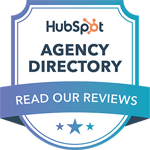
It used to be that a search engine results page (SERP) was very simple. You had paid ads and organic listings, and they all looked pretty much the same, with a URL, title, and short description.
However, things move on, and recognizing people’s wish to have quick access to information, Google and the other search engines have gradually added more and more features to their results pages. This is great for the people using the search engines, but what does it all mean if you’re trying to get your own website to feature on Google’s first page?
While the results pages may look a little bit more complicated, it actually means there are lots of different ways to get your website noticed, and if you understand the SERP, then you can make the most of this.
Paid Listings
Starting at the top of the page, one of the first things you will often see are the paid listings. These are the adverts that companies create to make sure they feature in the SERPs.
Advertisers craft their copy, Google or another search engine shows the ad, and when someone clicks on the listing, the company pays an agreed amount to the search engine. This is an extremely effective way to get your brand in front of the right people, but it can also be a costly exercise.
For this reason, advertisers often look for keywords where there’s a high buyer intent. If you’re paying money for each click, then you want to maximize your return, and this is why certain searches will bring up more ads than others.
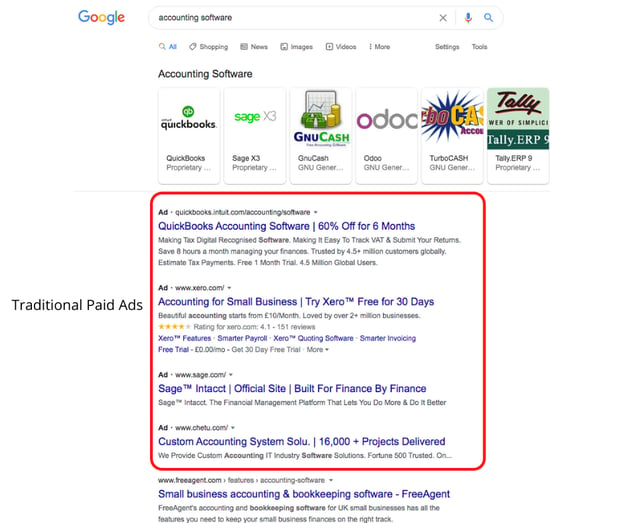
These paid ads look very similar to the traditional organic listings, with a URL, title, and short description, the small difference being the text on the left hand side saying “Ad.” These are the most common advert listings, but there is some variety even within paid ads.
Other paid listings include call only ads, which generally appear for mobile search and encourage people to call a businesses phone number, and paid shopping listings.
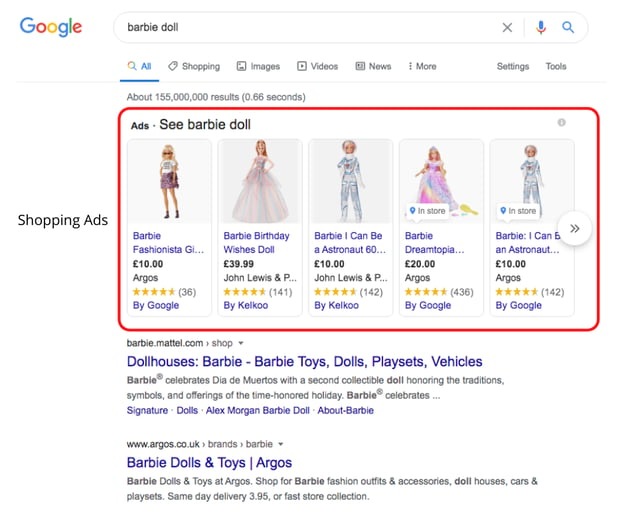
As you can see in this search, shopping ads play an extremely prominent role in the SERPs and can greatly boost your click through rate.
All your paid listings can be set up and managed through your Google Ads account, and they’re a brilliant way to quickly feature your brand at the top of the results pages for your keywords.
Organic Listings
Organic listings are the ones people most commonly tend to think of when they think of a search engine page. These are the listings Google’s famous algorithm has decided are the most relevant results for the search query, and generally include a URL, title, and short description.
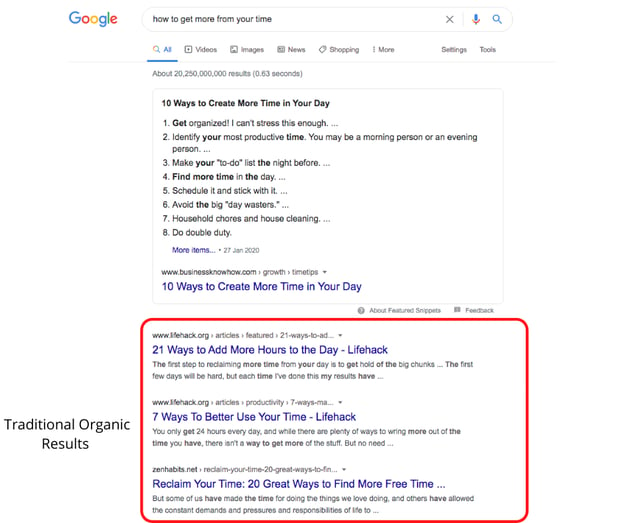
The great thing about organic listings is that you don’t have to pay when someone clicks to your website. However, there’s huge competition for the top spots on Google’s first page, so a focus on search engine optimization is needed.
While it’s not known exactly what goes into Google’s algorithm, we do have a pretty good idea about many of the factors that can help you achieve the top organic positions. With some dedication and a good SEO strategy, your website can rank in these top positions for its target keywords.
Rich Results
You might have noticed though that sometimes these organic listings contain some slightly different information, and these are called rich results.
Not only do these rich results give Google’s users easy access to information, but they also give you more control over how your listing appears. Using schema markup, you can allow your listing to really stand out from the crowd and pull in more clicks.
Schema are special tags you can add to your html to tell the search engines more about the page. This gives you greater control over how your listing is displayed to make sure you’re showing the information that’s going to get people to click.
A prominent example of schema is the recipe markup we can see below.

Rather than just a title and a short description, this listing contains extra information such as a star rating, cooking time, ingredients, and number of calories. This allows people viewing the SERP to quickly make a decision on which recipe they want to choose.
There are lots of different types of markup, but the most commonly used ones fall into the categories of creative works (such as books,) events, organizations, people, places, and products. Each different group has its own markup which can be seen at the schema.org website, and each will look slightly different in the SERPs.
How you want your listing to appear in the SERPs will depend on what type of page you're sending people to, but making use of rich results can make a big difference to your CTR.
SERP Features
SERP features are a relatively new part of a search engine page, and they certainly catch your attention. These features, such as local packs, featured snippets, and knowledge packs are designed to give people quick access to information, but they can also bring your website lots of extra traffic.
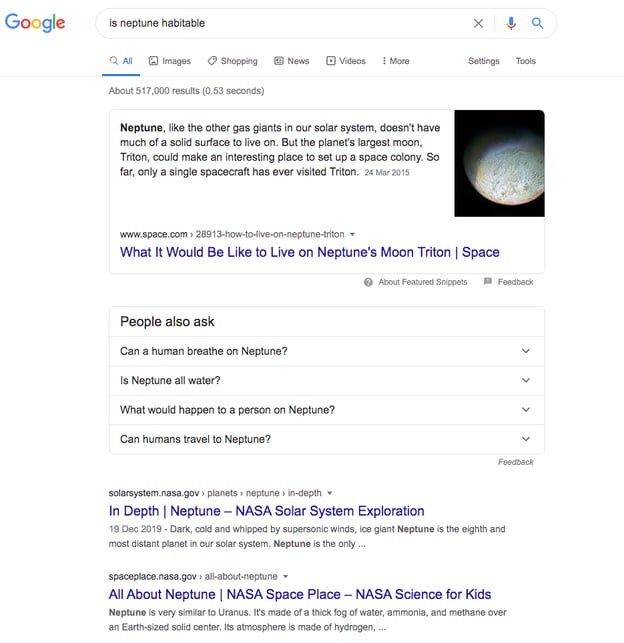
In this search for “is Neptune habitable,” we can see the power of SERP features, with the “featured snippet” and “people also ask” box taking up a huge amount of space at the top of the page.
As you might expect with such a prominent position, SERP features have the potential to greatly increase your click through rate (CTR), with HubSpot finding that winning the featured snippet more than doubled its CTR.
One of the most common SERP features is the local pack, which appears when people are looking for local information. With 46% of all searches looking for local information this makes appearing in the local pack a big deal for any business.
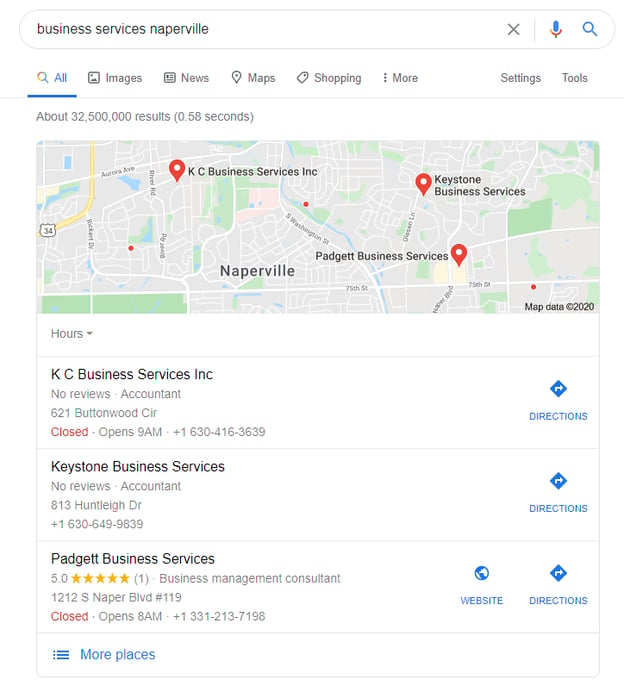
People who are searching for local results such as this query for “business services naperville” tend to have very high buyer intent, which is one of the reasons it pays to feature in the local pack. You can achieve this through good local SEO, but one of the most important steps is filling out your Google My Business account.
Google My Business is where Google gets all the information about your company (address, contact number, and opening times,) so if you want to show up in the local pack, then you need to fill it out fully.
Once you’ve got your Google My Business account setup, then you can start to collect reviews from your customers, and use your schema markup to show your star rating underneath your listing. Social proof such as these star ratings play a big part in people’s decision making, so they can be a big incentive for people to click your listing.
The key thing with these features is that they give you an extra opportunity to win the click.
There are lots of different types of SERP features, and you will encounter different ones based on the type of query you search. While you can optimize your website to boost your chances of featuring in the SERP features, a lot of it is based on the same solid SEO techniques that you use to get your website listed organically.
However, the importance of the SERP features to your website can’t be underestimated, particularly for things like local SEO, and you need to be aware of which SERP features are prevalent for your target keywords.
Takeaways
The search engine results pages are continually evolving, and this will always offer websites new opportunities to get ahead of the competition and attract more clicks. Whether you’re looking to reach your target audience through paid ads, or rank organically, there are always ways to maximize your click through rate and boost your traffic, and the better you understand the SERPs the easier this is to do.
While the SERPs can still be broken down into two main categories - paid and organic, there are now lots of different ways Google displays these results. With a strong SEO strategy, your business can make sure it’s making the most of all the opportunities the search engine pages offer, maximizing your return on ad spend, and getting those all important organic clicks.
The search engine pages might look a little more complicated than they used to, but they’re still a great opportunity to get your brand in front of the right audience.




